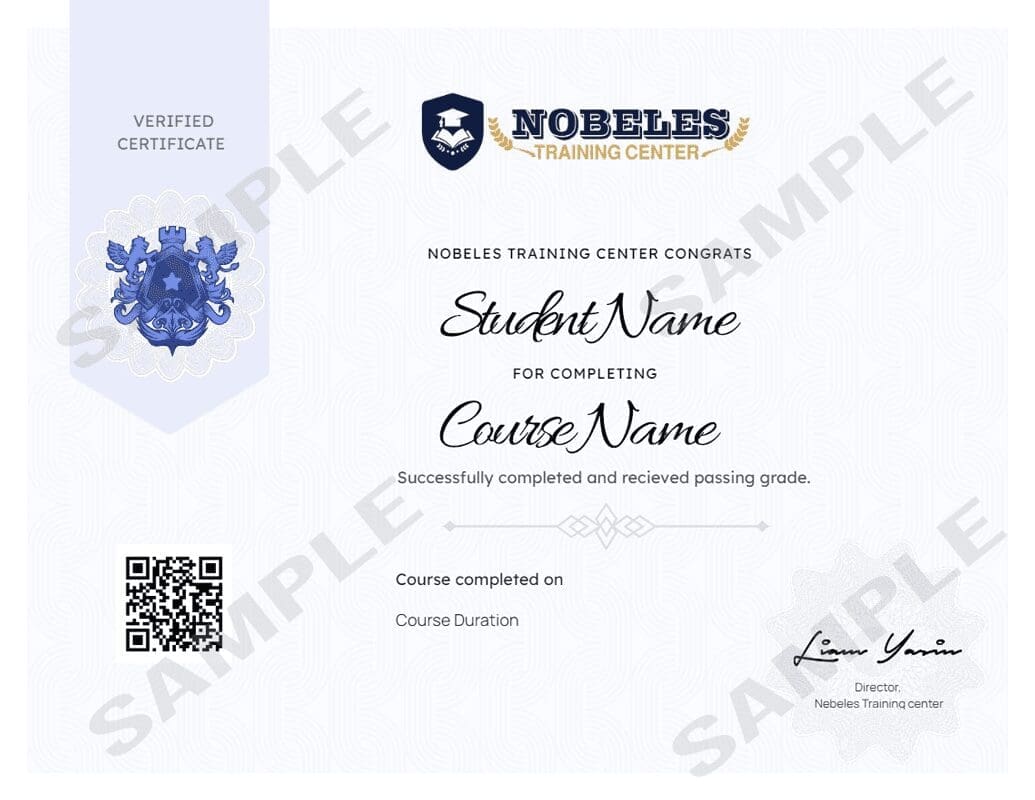Description
Curriculum
Instructor
Welcome to the Work-Life Balance course. Work- life balance is essential to combat stress, ensuring both individual and company success. The stress associated with unbalanced lifestyles is costly; it damages productivity and increases individual health risks. Employees who have the tools to balance their professional and personal lives are happier, healthier, and more productive.
In addition to improving performance, many younger employees place a high value on work-life balance. Companies that include work-life balance as part of their culture will be better able to attract qualified candidates.
Please enter your name and email to view the content:
Curriculum
- 11 Sections
- 11 Lessons
- 10 Hours
Expand all sectionsCollapse all sections
- Benefits of a Healthy BalanceThe benefits of a healthy work-life balance include improved mental and physical well-being, increased productivity, enhanced job satisfaction, and stronger relationships. It fosters resilience and overall happiness, promoting long-term success.1
- Signs of an ImbalanceSigns of an imbalance include chronic stress, burnout, decreased productivity, strained relationships, and neglect of personal interests. Recognizing these indicators early can prompt adjustments, fostering better work-life integration and overall well-being.1
- Employer ResourcesEmployer resources for promoting work-life balance include flexible work arrangements, wellness programs, mental health support, and professional development opportunities. These initiatives enhance employee satisfaction, productivity, and retention, creating a supportive workplace culture.1
- Tips in Time ManagementTips for effective time management include setting clear goals, prioritizing tasks, using calendars and planners, breaking projects into smaller steps, and minimizing distractions. Regularly reviewing progress helps maintain focus and productivity.1
- Goal SettingGoal setting involves defining clear, measurable objectives to guide efforts and enhance motivation. Establishing both short-term and long-term goals fosters focus, accountability, and a sense of achievement, driving personal and professional growth.1
- Optional Ways to WorkOptional ways to work include remote work, flexible hours, job sharing, and freelance opportunities. These arrangements enhance work-life balance, increase job satisfaction, and accommodate diverse employee needs, promoting productivity and well-being.1
- At WorkAt work, fostering a supportive environment includes encouraging open communication, providing resources for professional development, recognizing achievements, and promoting teamwork. These practices enhance engagement, productivity, and overall employee satisfaction in the workplace.1
- At HomeAt home, creating a conducive environment for work-life balance involves setting boundaries, establishing a dedicated workspace, prioritizing family time, and incorporating self-care activities. This approach enhances focus, reduces stress, and promotes well-being.1
- Stress ManagementStress management involves recognizing stressors and implementing techniques like mindfulness, exercise, time management, and social support. Effective strategies enhance resilience, improve mental health, and foster a balanced, productive lifestyle.1
- Working in a Home OfficeWorking in a home office requires establishing a dedicated workspace, maintaining a structured routine, and minimizing distractions. Effective communication and regular breaks enhance productivity, while setting boundaries fosters work-life balance and well-being.1
- Post-TestPost-Test1
Nobles Center

5 Students146 Courses
Review
$225.00
195 students
11 lessons
Language: English
0 quiz
Assessments: Yes
Skill level All levels
Nobles Certificate
At the end of the course, you can download a copy of your certified certificate.
Nobeles Academy
Mobile Application
Download the Nobeles center mobile app from the app app store, click the button below


